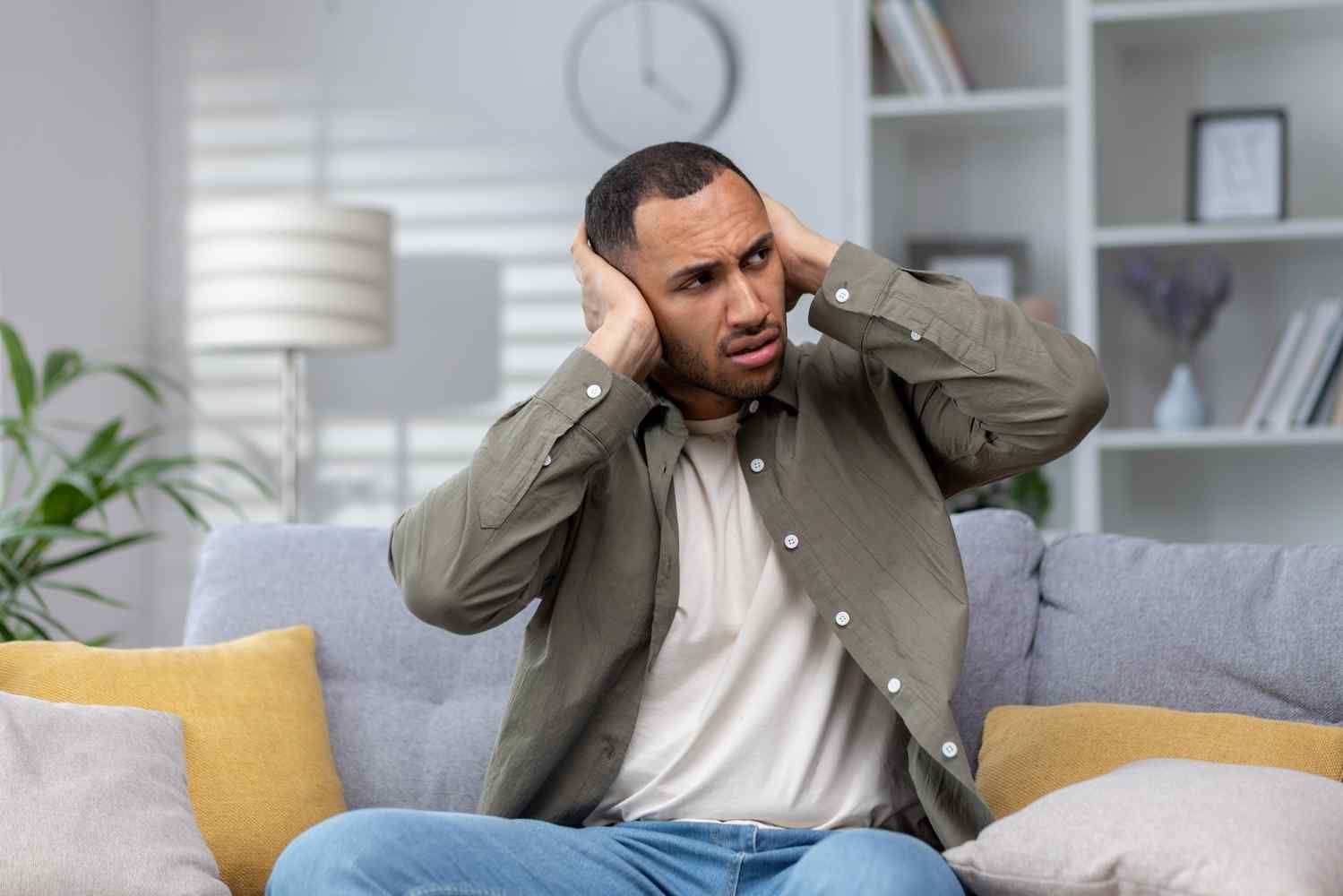- Discover what's behind most noisy garage doors
- Learn how to fix some common causes
- Find out when to seek professional repairs

Unless you're manually opening a carriage style garage door, you're used to the noise your garage door typically makes as it opens and closes. But if you notice your garage door makes loud noises when opening and closing or is just a noisy garage door, then there could be deeper causes.
For starters, not all garage door sounds are the same. Garage doors make varied sounds that all indicate different causes. Garage door clanging sounds are addressed differently than garage door squeals. We'll explore some common causes of garage noises and how you can get a jump start on fixing them.
Squeaks, Creaks, and Screeches Are Cries for Help
If your garage door is squeaking, creaking, or screeching as you open or close it, it's a good indication that there are parts in need of attention.
- Check the rollers: The rollers are what spin on the garage door tracks and allow the door to open and close. If these are worn down, they can make loud screeching sounds as they move. They may even be so worn that they're jumping off the tracks. If they're plastic, they may need replacing. Steel and nylon rollers last longer and may only need some lubricant.
- Check other hardware: If the rollers don't appear to be worn down, it's never a bad idea to spray some white lithium grease onto them just in case. While you have the grease on you, take a look at other pieces of hardware along the tracks and spray those as well. These parts move frequently which can cause those squeaking sounds as metal moves against metal.
- Check hinges, locks, and springs: Other areas that are prone to squeaking and creaking are the hinges, the manual lock, and the torsion or extension spring above the door. Ensuring that these areas are also properly lubricated won't just prevent the horrible sounds, they'll also help you extend the lifetime of these parts.
Grinding or Squealing is a Fundamental Flaw
If your garage door squeals or makes grinding sounds while it's in operation, this might indicate that the door itself wasn't properly installed or that there are deep flaws in essential components.
- Properly installed garage doors don't squeal: If the garage door is making loud squealing noises as it opens or closes, this could indicate that the door wasn't properly installed. If you notice that the motion of the door isn't smooth, this can confirm the need to reinstall the door.
- Grinding sounds aren't normal: A loud grinding sound as the door functions could be a sign that there are problems with hardware on the door. This could be a sign that gears in the opener have worn down and are grinding against each other or that the tracks of the door are misaligned. Either problem should be addressed with professional assistance to ensure no further damage is done.
Banging, Clanging, or Rattling is the Language of Loose Hardware
If you're hearing banging, clanging, or rattling sounds as you use your garage door, do not continue to use the garage door before identifying the source of the sound. These problems could pose safety risks.
- Banging and clanging could mean broken parts: If you're hearing loud banging sounds or persistent clanging, that might mean that hardware is broken. The nuts, bolts, and other hardware components can break if they're overly tight or grinding against one another for too long.
- Rattling sounds might just be loose parts: A rattling sound meanwhile, may be an early warning sound of parts becoming loose. One area where this can happen is the chain or drive belt that the automatic opener relies on. This is an issue that deserves immediate attention before important parts become disconnected, threatening the integrity of the entire garage door.
- A banging sound heard throughout the house: If you hear a bang from the garage while in another room, this could be caused by a broken extension spring or cable. These high tension springs and cables produce enormous amounts of energy that can create a loud banging or snapping sound as they break and ricochet. Once you've confirmed it's a broken spring—contact professionals—never attempt to fix or repair the spring yourself.
Scraping or Buzzing Sounds Need Attention
If you hear scraping or buzzing sounds, these may signal issues with two of the main components of your garage door: the door itself and the opener.
- Scraping sounds signal an off-balance door: When the door is off balance, it may be visibly uneven, fail to open, or simply slam shut once opened. Before you notice these tell tale signs, however, you may hear a scraping sound as the door slides up parts of the track it was never supposed to. Repairing an off balance door requires professional expertise.
- Buzzing sounds shouldn't be ignored: If you hear a buzzing sound coming from your automatic opener this might indicate that it's reached the end of its lifespan. Getting this replaced should stop those sounds going forward.
We Silence Your Noisy Garage Door
A noisy garage door is nothing to ignore. These sounds provide important clues about potential issues with your garage door. If you want to put an end to garage door squeals and prevent minor problems from becoming major issues contact us today to schedule your service.
